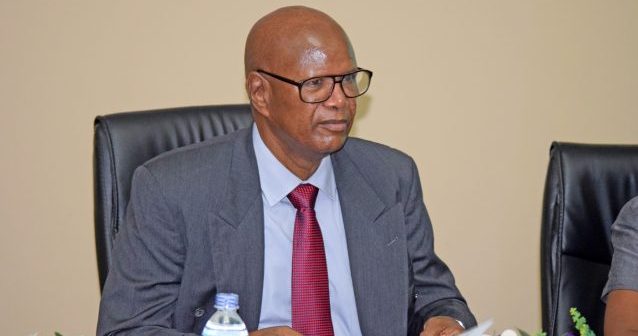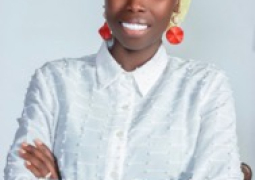
The battle lines have now been clearly drawn between supporters of President Adama Barrow and the rest of the members of the National Assembly, and indeed the whole country, after the Draft 2020 Constitution Bill was defeated on Tuesday by 31 members in favour, with 23 against, with the ‘Yes’ camp failing to meet the required threshold of 42 votes to move it to the next stage.
After quite an acrimonious debate, which clearly showed from the very beginning that supporters of President Barrow had adopted quite an uncompromising stance with regards to the Bill, but it was hard to imagine that anyone of them would stoop this low just for their own personal aggrandizement. There were however clear indications from the word go that regardless of what anyone said during the debate, the Barrow supporters were bent on killing the Bill, using all types of trivial excuses to vote against it, such as the retroactive nature of the draft that they said would deny President Barrow the right to vie for a third term if he wins the next presidential elections.
While there were no doubt certain clauses of the Draft that genuinely attracted criticism, but that was certainly not enough reason to vote against it and in the process, not only throw away the more than 100 million Dalasis of public money spent on providing the Draft, but also denying Gambians the opportunity to determine whether or not they wanted it promulgated.
An analysis of the vote shows quite clearly that a majority of those who voted against the Bill were the estranged members of the United Democratic Party (UDP) who were expelled by the party for shifting their allegiance to President Barrow after his split with the UDP. While it may not be quite obvious as to why they chose to vote against the Draft against the wishes of many Gambians, but it appears that apart from their unflinching support for President Barrow, their main motivation for voting against the Bill could have been the pleasure of humiliating the UDP regardless of the negative consequences of their actions. It appears that their only satisfaction was to make sure that the Bill, which was mainly supported by members of the UDP, failed. They did not seem to care what consequences it meant for this country.
Another revelation of the vote was the fact that some of the political parties represented in the National Assembly are not as united as they had been projecting to the public. For instance, we have seen that the Gambia Democratic Congress (GDC) members were split in half, with two voting for and two voting against. Also, one of the two members of the PPP voted against the Bill while his colleague, who was said to have travelled abroad, indicated in her Facebook postings that she supported the Bill, an indication that the PPP was also split.
Due to the failure of the Independent Electoral Commission (IEC) to hold the long over-due by-election for Niamina West, more than eight months after the death of their National Assembly member, the Constituency was among three who were absent during the vote. The other two were the Member for Banjul South, Touma Njie, who was said to have been out of the country, and the member for Wuli West, Sidia Jatta, who was surprising absent from the chamber during the vote.
Now that the National Assembly has thrown out the Draft 2020 Constitution Bill, after the huge amount of money and all the hard work that had gone into providing what most Gambians have said was a good document, everyone is watching what the Chairman of the Constitutional Review Commission (CRC), Justice Cherno Sulayman Jallow and his team would do. It would certainly not be surprising if they decide to tender their immediate resignation because it is hard to see how they would continue to serve in their positions after such humiliation by the National Assembly, with the apparent connivance of President Barrow and the executive.
Many people are wondering why it is only those who have manifested their support to President Barrow that have voted against the Draft Constitution. Was it by coincidence or by design, some people tend to ask. There are however others who are convinced that not only was President Barrow aware of the scheme to throw out the Draft, but that the whole thing was orchestrated from State House. We can all recall how the members of the cabinet were said to have expressed opposition to some aspects of the Draft when it was submitted to the President. Among their objections was the clause that denied President Barrow the opportunity to go for a third term as well as requiring the National Assembly to confirm the President’s appointments for cabinet and other senior positions, all of which were also among the reasons given by the opponents of the Draft Constitution. Even the very fact that President Barrow had conspicuously avoided talking about the Draft Constitution tends to give credence to allegations that he never wanted it to succeed.
With the premature death of the Draft Constitution, what next for our constitutional development and when will the Gambia transition to the Third Republic?
There appears to be few options now open to the government; either stay put with the 1997 Constitution, review and amend some of its sections (which was initially proposed by Halifa Sallah but rejected by the government), re-submit the rejected draft or start the whole process of drafting another Constitution. In any event, however, more than D100 million Dalasis have already been wasted on the process, which amount could have gone a very long way in addressing the problems confronting our almost collapsed health system.
However, with the acrimony of the debate that led to the rejection of the Draft and the obvious fact that the National Assembly is seriously divided along party lines, it would henceforth be quite hard for the executive to have its bills passed. The battle lines between the various opposing factions have been clearly drawn and that is likely to have negative impact on getting any sort of consensus in their work. It is hard to see how the Attorney General’s Chambers and indeed the executive would now get the support and cooperation of those members who voted for the Bill, especially when it comes to anything to do with another new Constitution.
While the supporters of President Barrow are jubilating over their pyrrhic victory in the National Assembly, but it appears that they are not quite aware of the serious consequences of their actions on the very credibility of the government that they support. Even the very fact that over 100 million Dalasis spent on the process have been thrown into the drain, has its own consequences, especially amongst our development partners. It is hard to see how the government would convince them that it deserves any development support when it has been seen to encourage such wastage of public funds.



